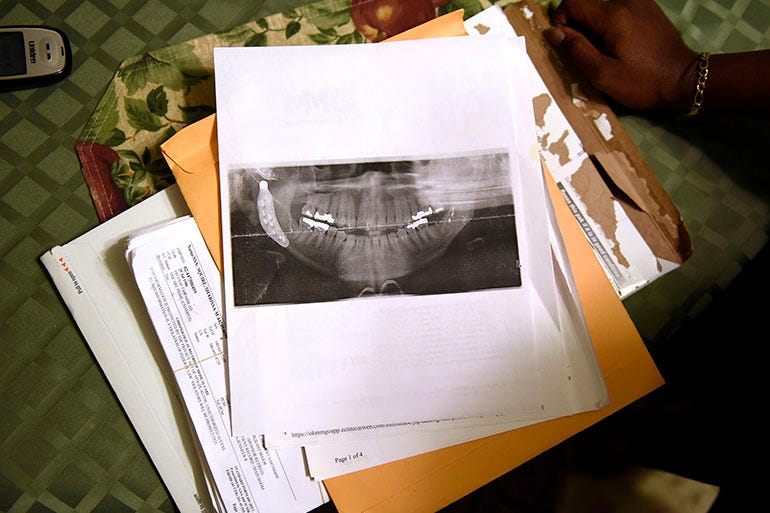On Friday, September 17, the UK Court of Appeal overturned a judgement ruling that children under the age of 16 are unable to consent to taking drugs euphemistically referred to as ‘puberty blockers’, which halt a child’s natural growth process. The decision was made in favor of the Tavistock and Portman NHS foundation trust, which runs England’s only gender identity development service (GIDS) for children, and was brought forward last year by Keira Bell, who was prescribed puberty blocking drugs at the age of 16 and has since detransitioned.
Bell describes in detail how she suffered from depression as a teenager, and how she “had never had a positive association with the term ‘lesbian’ or the idea that two girls could be in a relationship,” leading to her confusion about her body that led her towards transitioning. At 15, she was referred to the Gender Identity Development Service, at the Tavistock, and after a few conversations was placed on ‘puberty blockers’ when she was 16.
These drugs called ‘puberty blockers’ are technically better described as endocrine disruptors, and there is little evidence to support activists’ claims that they are not only safe and reversible but also ‘life-saving’, as they are frequently described by media outlets and lobbying organisations; however, there is ample evidence to the contrary.
The Tavistock released information from a report at the beginning of 2021 which concluded that “puberty blockers do not alleviate negative thoughts in children with dysphoria”. Children aged 12 - 15 who were administered the drugs as a treatment for severe and persistent gender dysphoria experienced no significant improvement in their psychological function, thoughts of self-harm, or body image. However, the children did experience decreased bone strength by the age of 16, and data showed that some of the children taking the drugs reported an increase in thoughts of suicide and self-harm.
In addition, a Swedish study showed that after transition, patients had a 19x higher rate of suicide than matched controls: “The overall mortality for sex-reassigned persons was higher during follow-up than for controls of the same birth sex, particularly death from suicide. Sex-reassigned persons also had an increased risk for suicide attempts and psychiatric inpatient care.”
Endocrinologist Dr. Will Malone, who is one of several doctors raising the alarm on this issue, said, “It is misleading to state as fact that ‘puberty blockers are reversible’. No one knows if the physical and psychological impacts of halting normal puberty are reversible.” Research conducted by Dr. Malone and Dr. Michael Laidlaw found that after two years of pubertal suppression, up to a third of children aged 12 - 15 years old were found to have abnormally low bone density. Moreover, further research conducted by Dr. Michael Biggs found that after two years of ‘puberty blocking’ medications, bone density in a significant number of children “declined to a level that should trigger clinical concern”. In the study, Biggs cites an example of a patient at the Tavistock clinic who began taking endocrine disruptors at the age of 12 and experienced four broken bones by the age of 16.
‘Puberty Blockers’ and Women’s Health
One of the drugs most commonly prescribed as a ‘puberty blocker’ is Lupron, manufactured by AbbVie (formerly Takeda-Abbott Pharmaceuticals, or TAP). Lupron was developed for the treatment of prostate cancer in men and the US FDA approved it for this use in 1985. In 1990, the FDA approved Lupron for the treatment of endometriosis in women.
However, the drug is “so toxic it is not recommended for more than 12 months in a lifetime,” according to a 2019 investigation by KTNV News, which reported on complaints made by women who had been prescribed Lupron for endometriosis. “The FDA currently has over 25,000 adverse event reports for Lupron products including more than 1500 deaths. Reactions include suicidal thoughts, stroke, muscle atrophy and debilitating bone and joint pain,” the investigation found, and women reported that they were not properly warned of its risks and side effects.
The investigation was a follow-up to a previous news report by KTNV conducted nearly a decade earlier, in 2010, after which Lupron’s warning label was updated to include risks of thromboembolism, convulsions, and loss of bone density. In 2009, Lupron’s manufacturers were reprimanded by the FDA, saying that the company’s promotional materials for an HIV drug “minimize the serious risks… while overstating its efficacy and including unsubstantiated claims.”
In 2001, Lupron manufacturer TAP settled for a then-record $875 million for fraud. The lawsuit found that high-level employees, including TAP’s president, were bribing doctors to prescribe Lupron by providing kickbacks, including vacation trips, medical equipment and money offered in the form of educational grants.
A similar local news report from WXYZ-TV Detroit documented the testimonies of women who consider themselves Lupron victims, including Georgia woman Terry Paulsen, who filed a federal lawsuit claiming the pharmaceutical company failed to warn her and other women about its crippling side effects. “Her immune system began to attack her own bones. She got osteopenia and osteoporosis and now she’s got terrible osteoporosis,” said Dr. Alan Levin, an immunologist and Paulsen’s attorney.
Of the 24,000 reports of adverse reactions filed with the FDA, according to The Atlanta Journal-Constitution, 60 percent of those were filed by women, and more than half of them were deemed to be serious cases.
“Lupron lawyers convinced a federal judge to seal the results from several clinical trials, but not before an expert witness disclosed evidence that even after a year off the drug, 62 percent of women did not regain normal estrogen levels. AbbVie refused to comment on the studies or on Terry Paulsen.”
Women who were given Lupron for ‘precocious puberty’ have also spoken out, detailing horrific and ongoing side effects. “It feels like I have 80-year-old bones,” said 22-year-old Brooklyn Harbin, one of the women who has filed an adverse reaction report. Harbin was prescribed Lupron at 10 years old, to pause the onset of her menstrual cycle. “The back pain became very, very severe. It got very, very depressing having to be in a wheelchair in the fifth grade,” Harbin told The Atlanta Journal-Constitution.
In 2017, PBS interviewed women who had been treated with Lupron for precocious puberty, and found, “A 20-year-old from South Carolina was diagnosed with osteopenia, a thinning of the bones, while a 25 year-old from Pennsylvania has osteoporosis and a cracked spine. A 26 year-old in Massachusetts needed a total hip replacement. A 25-year-old in Wisconsin… has chronic pain and degenerative disc disease.”
One woman who agreed to go on the record, Sharissa Derricott, said that at the age of 21, a surgeon had to replace her deteriorated jaw joint. In addition to being diagnosed with degenerative disc disease and fibromyalgia, a chronic pain condition, her teeth were breaking apart in her mouth.
“It just feels like I’m being punished for basically being experimented on when I was a child,” Derricott told PBS. “I’d hate for a child to be put on Lupron, get to my age and go through the things I have been through.”
So often in the debate over drugs referred to as ‘puberty blockers’, advocates and critics alike neglect to mention that before these drugs were marketed to gender non-conforming children, it was women who suffered, and continue to suffer, from their intense side effects. These women are the canaries in the coal mine, whose voices are continuously sidelined and ignored, despite the impact on their health so closely mirroring the reports implicating loss of bone density in children who are given endrocrine disruptors as a purported ‘treatment’ for body dysmorphia.
There is no reason to turn a healthy child or adolescent into a perpetual patient, dependent for a lifetime on surgeries and wrong-sex hormones. We ignore the harms inflicted on women’s health by leading ‘puberty-blocker’ Lupron at our own peril. These women, Keira Bell, and all detransitioners deserve better. Children ought to be protected from those who seek to exploit their distress for profit while damaging their health in the process.






This is the most detailed article on Lupron I have read, and it is horrifying.
As I'm sure you probably know, Gen, in the UK, Political Parties accepted large donations from the manufacturer of Lupron and then promoted the hell out of 'gender affirming care' for children and championed trans ideology and its mantras. The Greens and Liberal Democrats, Plaid Cymru and the SNP are the worst offenders, but they were never held to account by our MSM or any political watchdog. It's greed over ethics every time - these people are evil.